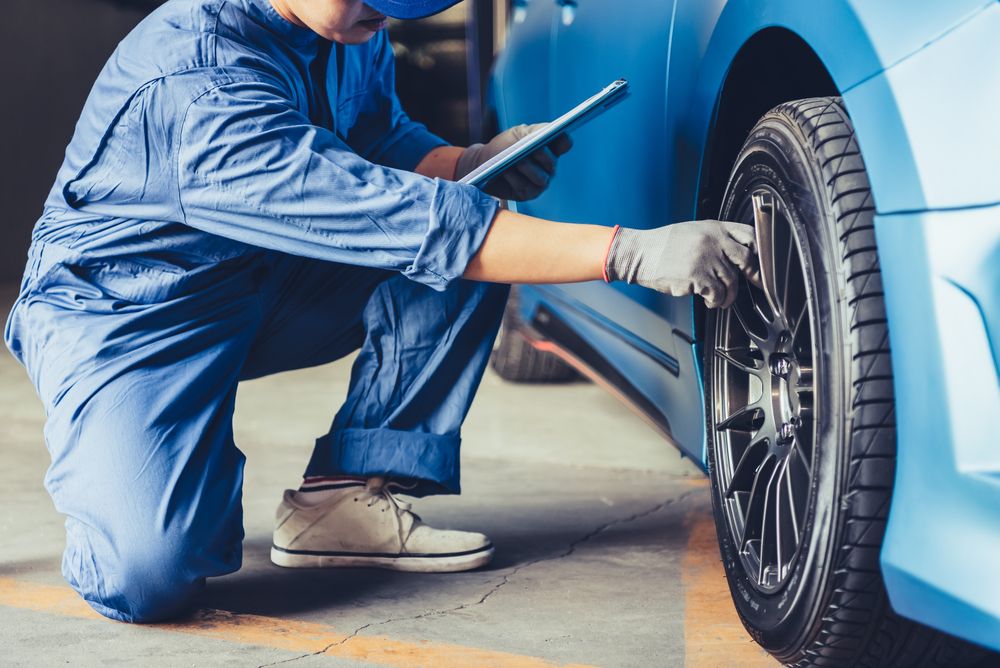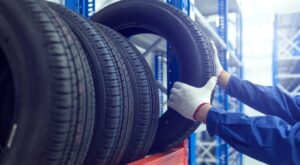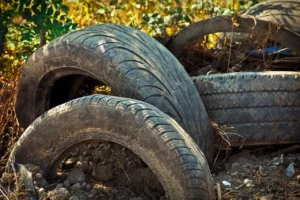Tires are one of the most important parts of a car as they directly affect the car’s driving performance, safety and fuel economy. If you don’t take good care of your tires, they will wear out faster, use more gas and even become dangerous to drive. By proactively maintaining your tires, you can extend the life of your tires and enjoy many other benefits that make driving more enjoyable.
better security
Safety comes first when it comes to driving, and well-maintained tires are an important part of that. Worn or under-inflated tires can increase the risk of a collision by making it more difficult to control, stop and maintain stability. Regular inspections, tire rotations and alignment checks are all part of good tire maintenance and will help keep your tires in good condition and improve safety.
Maintaining the correct tire pressure is important for safety. If your tires are too low, it will be harder to control your car and it will take longer to stop. If they are too high, they can lose traction and make driving difficult. Checking your tire pressure and adjusting it to the manufacturer’s recommended value will ensure your tires operate properly and keep you safe.
better fuel efficiency
Properly maintaining your tires can have a major impact on the amount of gasoline your car uses. When the tires are properly inflated and aligned, they create less resistance to movement, which helps the engine work better. When tires are not properly filled, rolling resistance increases, causing the engine to use more fuel to maintain speed. You can save money at the pump and get better gas mileage by making sure your tires are properly filled.
Replacing your tires regularly is another way to save money on gas. Tire rotations ensure even tire wear, keeping rolling resistance constant and fuel consumption optimal. Tires that are worn unevenly have higher rolling resistance and use more fuel.
longer tire life
Proper tire maintenance helps extend the life of your tires, which is one of the most obvious benefits. Tire rotation, balancing, and checking alignment are all common maintenance tasks that ensure all tires wear properly. This even wear can help you avoid premature tire replacement and help you get the most out of the mileage you get from each set of tires.
The correct tire pressure is also very important for extending the life of your tires. If the tire is too low, the sides will wear faster than the center profile. If the tire is too long, the center tread will wear more slowly. Maintaining the correct tire pressure ensures that the entire tread is in contact with the road. This causes the tires to wear evenly and extends their lifespan.
save costs
Good maintenance ensures that your tires last longer, which can save you a lot of money. Tires are an expensive item and replacing them regularly can cost a lot of money. In the long run, you will save money because you will have to buy new tires less often if you take good care of your current tires.
Keeping your tires in good condition can also help reduce gas consumption, lowering your overall gas costs. Maintaining your tires is a smart way to save money because you save money on gas and extend the life of your tires.
Better performance and handling
Proper care of your tires has a direct influence on the handling and overall driving condition of your car. Properly inflated and aligned tires have better grip, stability and responsiveness. For a better driving experience, this improved handling makes your car easier to maneuver and more fun to drive.
Regular tire maintenance can also help prevent problems such as uneven wear, which can make your ride less smooth. When the tires are balanced, the ride is smoother and easier, leaving the driver less fatigued and generally more satisfied with the ride.
How to maintain tires
Follow these important tire maintenance tips to get more mileage out of your tires and better fuel economy.
Check the tire pressure regularly
Do this before a long trip and at least once a month. To ensure your tires are inflated to the manufacturer’s recommended level, use a reliable tire pressure gauge. Don’t forget to check the pressure when your tires are cold. She can drive
The balance of your car, especially if you notice uneven tire wear or if the car pulls to one side. When you align your car, the tires make even contact with the road, which prevents uneven wear and makes the car easier to drive. When you encounter potholes, curbs, or other hazards on the road, they can throw your car off balance.
Check the tread depth
Check the tread height of your tires regularly to ensure they have sufficient grip. Check to see if the tread is deeper than the minimum depth recommended by the penny test or tire depth gauge. Tires that are worn and have less tread depth are more prone to hydroplaning and aquaplaning, which is detrimental to safety and performance.
Don’t overload.
Don’t put too much weight on the car; this will put extra strain on the tires and cause them to wear out faster than expected. Read your owner’s manual to find out how much weight your car can carry and make sure you don’t exceed that limit. Overloading also makes handling more difficult and uses less gasoline.
Be careful while driving.
Safe driving habits help keep your tires in good condition. Do not accelerate or decelerate quickly or make sharp turns. These actions wear out your tires faster and shorten their lifespan. Control your speed and stay off rough roads if possible to keep your tires in good condition.
In summary
Proper tire maintenance is important to extend tire life, improve tire safety, save money on gas and get the most out of your car. You can enjoy the benefits of well-maintained tires by checking tread depth, rotating and balancing your tires, and ensuring they are properly aligned. These changes not only save you money and make driving better, they also make driving safer and more fun.


